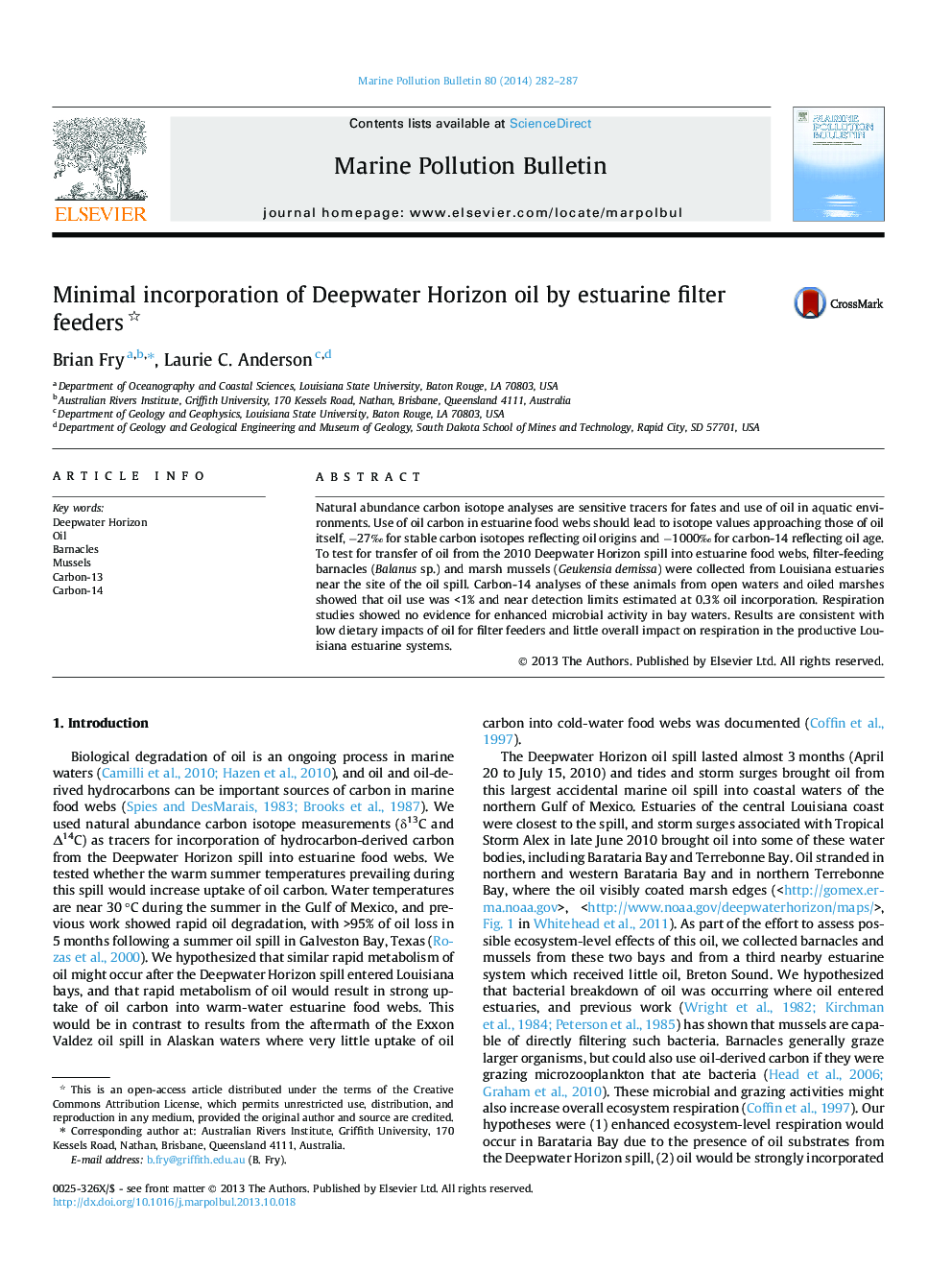| Article ID | Journal | Published Year | Pages | File Type |
|---|---|---|---|---|
| 6358089 | Marine Pollution Bulletin | 2014 | 6 Pages |
Abstract
Natural abundance carbon isotope analyses are sensitive tracers for fates and use of oil in aquatic environments. Use of oil carbon in estuarine food webs should lead to isotope values approaching those of oil itself, â27â° for stable carbon isotopes reflecting oil origins and â1000â° for carbon-14 reflecting oil age. To test for transfer of oil from the 2010 Deepwater Horizon spill into estuarine food webs, filter-feeding barnacles (Balanus sp.) and marsh mussels (Geukensia demissa) were collected from Louisiana estuaries near the site of the oil spill. Carbon-14 analyses of these animals from open waters and oiled marshes showed that oil use was <1% and near detection limits estimated at 0.3% oil incorporation. Respiration studies showed no evidence for enhanced microbial activity in bay waters. Results are consistent with low dietary impacts of oil for filter feeders and little overall impact on respiration in the productive Louisiana estuarine systems.
Related Topics
Physical Sciences and Engineering
Earth and Planetary Sciences
Oceanography
Authors
Brian Fry, Laurie C. Anderson,
